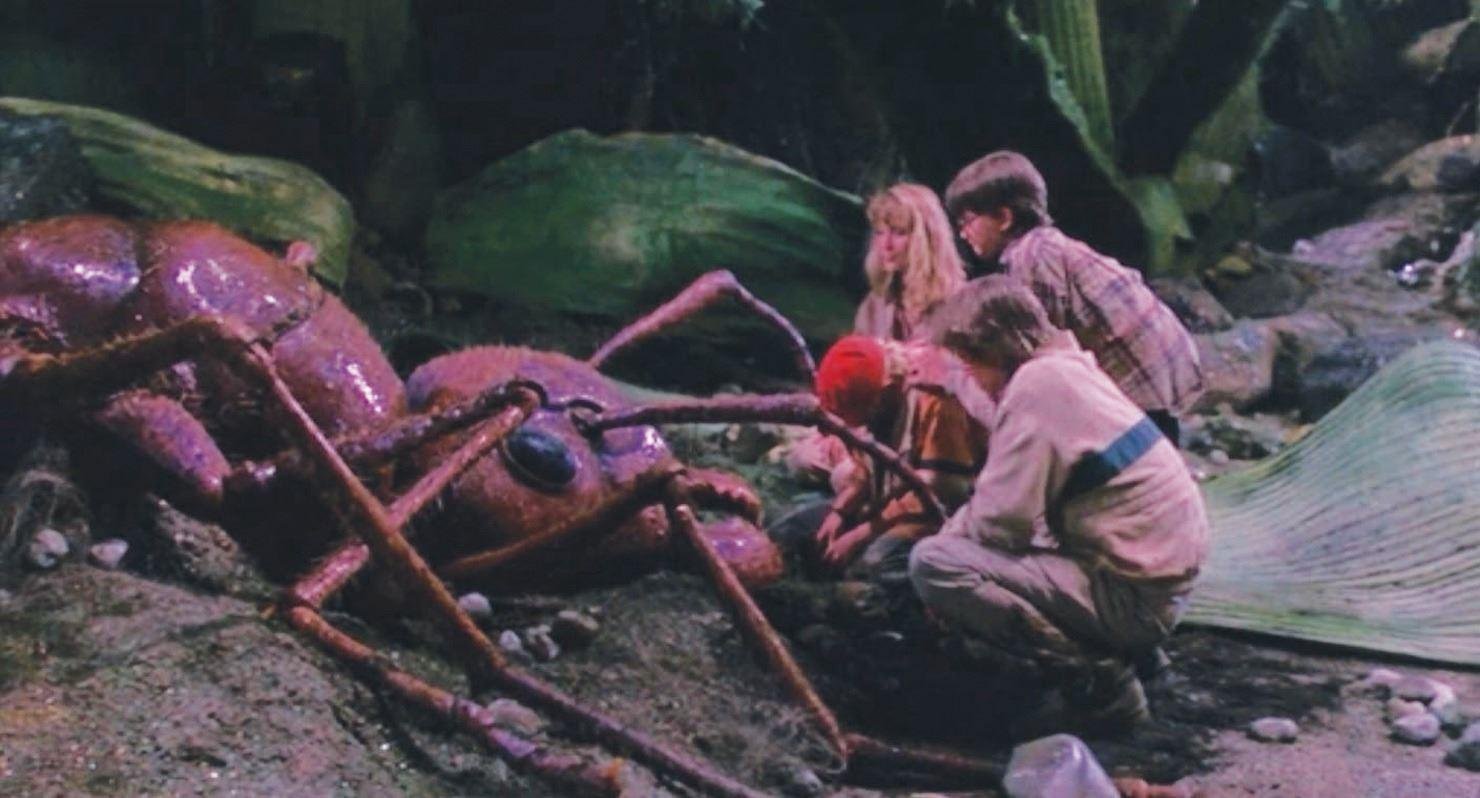I first saw Joe Johnston’s Honey, I Shrunk the Kids at a drive-in during its initial release in 1989. I was 11 and already a sci-fi junkie, so of course I loved it. Looking back, it’s not surprising that I took to this film as much as I did, as two men who I would come to admire later in life for their imaginative efforts in the horror genre shepherded this production through its earliest stages. Yes, this family-friendly Disney flick is the brainchild of splatter legends Stuart Gordon and Brian Yuzna. While obviously not as violent, disturbing, or outré as their typical outputs, the piece still bears their fingerprints and is better for it. June 23rd marks the film’s 35th anniversary.
Rick Moranis stars as absent-minded inventor Wayne Szalinski. Though experiencing a rough stretch in his marriage with Diane (practical Marcia Strassman), he’s determined to complete work on his shrink ray. A baseball accidentally blasted through the attic lab’s window soon results in the shrinking of the Szalinski children, Amy (boy-crazy Amy O’Neill) and Nick (nerdy Robert Oliveri), as well as the neighbor kids, Little Russ Thompson (rebellious Thomas Brown) and Ron Thompson (mouthy Jared Rushton).
Now smaller than a housefly, the teens and tweens must navigate dangers including the jungle-like expanse of their backyard, automobile-sized insects, and a sprinkler system that lobs basketball-sized drops of water at their heads. Meanwhile, their parents, including Big Russ Thompson (comedically loutish Matt Frewer) and Mae Thompson (easy-going Kristine Sutherland), grow increasingly worried. Will Wayne realize what’s happened and will the kids survive?
Ed Naha and Tom Schulman are credited as screenwriters, but the project was conceived by Gordon and Yuzna, who get story credits. Mining inspiration from kitschy ‘50s sci-fi flicks, the duo wrote the initial scripts. Gordon was supposed to direct but dropped out due to illness with Yuzna remaining on as a producer.
Johnston, known primarily at the time as a Lucasfilm special effects guru, was brought on for his directorial debut. He navigates the numerous effects sequences and light suburban domestic drama with just the right touch. We’re thrilled while getting just enough character moments to heighten the action and just enough comedy bits to alleviate the tension.
Performances don’t provide additional layering, as the characters are fairly generic, but that doesn’t mean they’re not fun. Moranis is always a joy, of course. Frewer absolutely steals some scenes, as is his wont. While these two headline the film, I think the kids as an ensemble have more screen time and focus. Their interactions with the upscaled sets and effects are key to the film’s success and they gift their astonishment and enthusiasm to the pacing.
Speaking of the sets and effects, they are the true stars of the film. From the giant blades of grass to the house-sized Lego block to the gigantic oatmeal cream pie, the detail of the sets provides a never-ending sense of amazement while at the same time immersing us in this fantastic landscape that transforms the mundane into the treacherous. Additionally, the practical effects, including sequences involving huge insects and a memorable bowl of cereal mostly hold up. The scorpion scene even delivers a bit of grotesque horror. Hiro Narita’s photography captures all of this insanity with aplomb and ensures that we’re often subtly reminded of the relative largeness and smallness of the characters. James Horner’s bouncy score keeps the proceedings fun and adventurous.
Joe Johnston’s Honey, I Shrunk the Kids holds up amazingly well. Probably due to the efforts of Stuart Gordon and Brian Yuzna, the film feels more all-ages than kiddie-focused, even deploying some light discussion of '80s-era latchkey culture. The effects and sets are gorgeous and bring an easy sense of wonder to the visuals. At 93 minutes, not a lot of time is spent exploring character, but that doesn’t hinder the effort at all. Highly recommended for fans of The Neverending Story, The Goonies, and Big.
Michael Cavender




